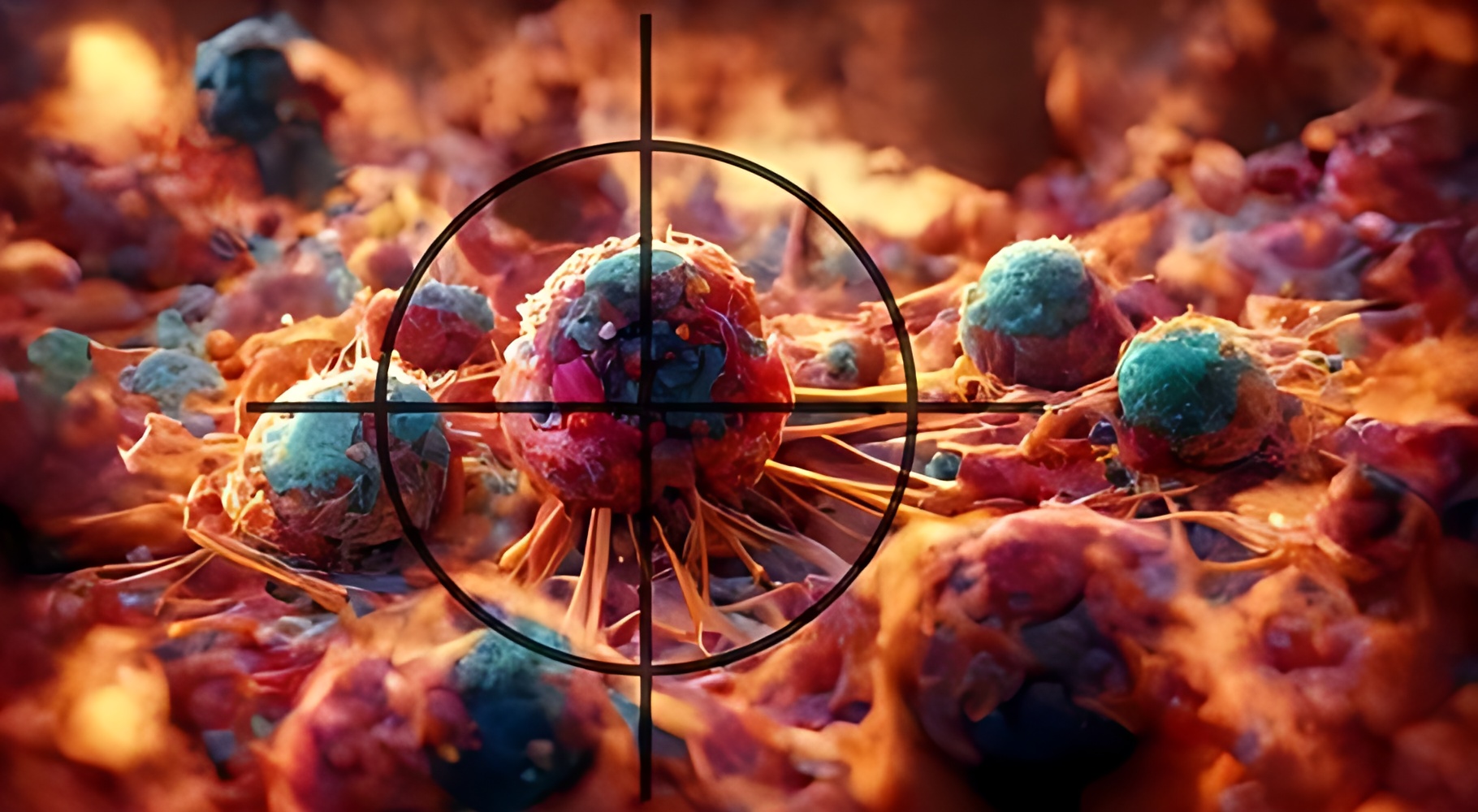
What is Targeted Therapy?
Targeted therapy stands as a specialized form of cancer treatment honed in on genetic alterations or mutations that transform normal cells into cancerous ones. This approach involves healthcare providers conducting genetic testing to pinpoint the specific changes fueling the growth and survival of cancer cells. Once identified, targeted therapies are employed to either eliminate these cells or impede their further growth.
The distinctive aspect of targeted therapy lies in its ability to combat cancer cells selectively, sparing healthy cells from harm. With over 80 developed targeted therapies, healthcare providers leverage this approach to address a diverse range of cancers. In some instances, targeted therapy serves as the primary or initial treatment, and it can also be integrated with other therapeutic interventions.
How does targeted therapy work?
Targeted therapy operates by identifying and addressing the genetic mutations responsible for transforming healthy cells into cancer cells. Once these mutations are understood, healthcare providers pinpoint specific components within the cancer cells to target for treatment. The targets may exist on the surfaces of cancer cells or within their internal structures.
-
Monoclonal Antibodies:
Monoclonal antibodies are artificially created versions of natural antibodies found in the immune system. They mimic the body's natural defense system, targeting cancer cells to either mark them for immune destruction or block their growth.
-
Small-Molecule Drugs:
These drugs are designed to bind to specific targets present on the surface or within the structure of cancer cells. By binding to these targets, small-molecule drugs work to either prevent the growth of cancer cells or induce cell death, thereby eliminating the cancerous cells.
What cancers can targeted therapies treat?
-
Chronic Myeloid Leukemia (CML):
Imatinib, dasatinib, nilotinib, bosutinib, ponatinib, and asciminib target the genetic defect in CML and are effective in its management.
-
Non-Small Cell Lung Cancer (NSCLC):
For EGFR mutations, drugs like erlotinib, gefitinib, afatinib, osimertinib, and dacomatinib are approved. For ALK mutations, therapies such as crizotinib, ceritinib, alectinib, and lorlatinib are effective.
-
HER2-Positive Breast Cancer:
Patients with HER2-positive mutations are treated with trastuzumab, pertuzumab, lapatinib, T-DM1, and T-DXd.
-
Colorectal Cancer:
Drugs like cetuximab, panitumumab, bevacizumab, and ramucirumab improve outcomes for colorectal cancer patients, especially those with specific genetic markers.
-
Head and Neck Cancer:
Cetuximab, when combined with chemotherapy, improves outcomes for advanced or metastatic head and neck cancers.
-
Gastric & Gastroesophageal Junction Cancer:
Ramucirumab is approved for treatment of advanced gastric cancers following failure of first-line systemic therapy.
-
Hepatocellular Carcinoma:
Targeted therapies such as sorafenib, lenvatinib, regorafenib, and cabozantinib are used in the management of hepatocellular carcinoma.
-
Renal Cell Carcinoma (Kidney Cancer):
Sunitinib, pazopanib, axitinib, lenvatinib, and cabozantinib are among the targeted therapies used to treat advanced or metastatic renal cell carcinoma.
-
Ovarian Cancer:
Olaparib and rucaparib are targeted therapies used for maintenance treatment in ovarian cancer patients with specific genetic defects.
-
Prostate Cancer:
In advanced prostate cancer patients with HRR (Homologous Recombination Repair) defects, olaparib plays a key role in treatment.
-
Gastrointestinal Stromal Tumor (GIST):
Imatinib, sunitinib, and regorafenib are used at different stages for managing GIST.
-
B-Cell Non-Hodgkin Lymphoma:
Rituximab, a monoclonal antibody, targets CD-20 expressed on B-cell Non-Hodgkin Lymphoma cells.
-
Hodgkin Lymphoma:
Brentuximab targets CD-30 and is effective in treating Hodgkin Lymphoma patients.
Does targeted therapy consistently achieve success in all cases?
-
Genetic Characteristics:
Success depends on the presence of actionable genetic mutations in cancer cells.
-
Cancer Type:
Certain cancers respond better to targeted therapies due to specific genetic changes.
-
Tumor Heterogeneity:
Some tumors have diverse genetic mutations, reducing the effectiveness of targeted therapy.
-
Development of Resistance:
Over time, cancer cells may develop resistance, limiting the long-term effectiveness of targeted treatments.
-
Individual Variability:
Each patient’s response may vary based on immune system strength, overall health, and other medical conditions.
In summary, while targeted therapy has shown remarkable success in specific cases, its effectiveness is not guaranteed for every individual or cancer type. Ongoing research aims to enhance our understanding of the complexities of cancer biology, identify new targets, and develop strategies to overcome resistance, ultimately improving the overall success of targeted therapies.
Google rating score:5.0 of 5, based on 47 reviews
;







